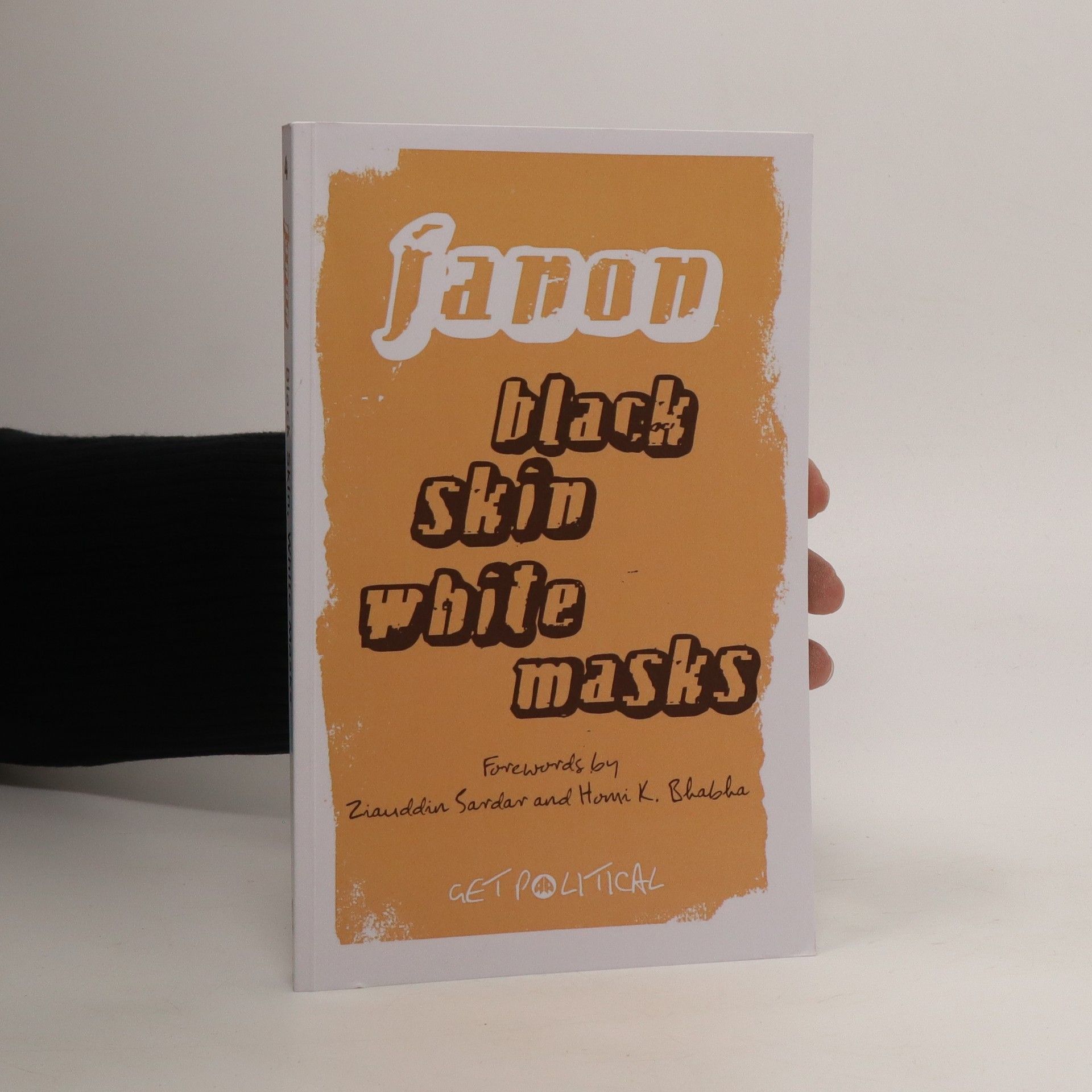Los condenados de la tierra
- 260 páginas
- 10 horas de lectura
Frantz Fanon, psiquiatra, filósofo y revolucionario de Martinica, es un pensador fundamental en los estudios poscoloniales. Su obra examina intensamente la psicopatología de la colonización, ofreciendo profundas perspectivas sobre los impactos psicológicos de la opresión. Las ideas revolucionarias de Fanon han resonado profundamente, inspirando movimientos de liberación anticolonial durante décadas. Su análisis del poder, la raza y la identidad continúa dando forma al discurso crítico.







This powerful collection of articles, essays, and letters spans the period between Black Skin, White Masks (1952) and The Wretched of the Earth (1961), Fanon s landmark manifesto on the psychology of the colonized and the means of empowerment necessary for their liberation. These pieces display the genesis of some of Fanon s greatest ideas ideas that became so vital to the leaders of the American civil rights movement.
Frantz Fanon's seminal work on anticolonialism and the fifth year of the Algerian Revolution. Psychiatrist, humanist, revolutionary, Frantz Fanon was one of the great political analysts of our time, the author of such seminal works of modern revolutionary theory as The Wretched of the Earth and Black Skin, White Masks . He has had a profound impact on civil rights, anticolonialism, and black consciousness movements around the world. A Dying Colonialism is Fanon's incisive and illuminating account of how, during the Algerian Revolution, the people of Algeria changed centuries-old cultural patterns and embraced certain ancient cultural practices long derided by their colonialist oppressors as "primitive," in order to destroy those oppressors. Fanon uses the fifth year of the Algerian Revolution as a point of departure for an explication of the inevitable dynamics of colonial oppression. This is a strong, lucid, and militant book; to read it is to understand why Fanon says that for the colonized, "having a gun is the only chance you still have of giving a meaning to your death."
Prior to becoming a psychiatrist, Frantz Fanon wanted to be a playwright and his interest in dialogue, dramatisation and metaphor continued throughout his writing and career. His passion for theatre developed during the years that he was studying medicine, and in 1949 he wrote the plays The Drowning Eye (L'Œil se noie), and Parallel Hands (Les Mains parallèles). This first English translation of the works gives us a Fanon at his most lyrical, experimental and provocative
The explosion will not happen today. It is too soon ... or too late.First published in English in 1968, Frantz Fanon's seminal text was immediately acclaimed as a classic of black liberationalist writing. Fanon's descriptions of the feelings of inadequacy and dependence experienced by people of colour in a white world are as salient and as compelling as ever. Fanon identifies a devastating pathology at the heart of Western culture, a denial of difference, that persists to this day. His writings speak to all who continue the struggle for political and cultural liberation in our troubled times.
Diese Sammlung enthält 28 der politischen Aufsätze Frantz Fanons. Sie stammen aus seiner aktivsten Periode und reichen von der Erstveröffentlichung von »Schwarze Haut, weiße Masken« im Jahr 1952 bis zu »Die Verdammten dieser Erde« im Jahr 1961. Seiner Diagnose nach gibt es am Rassismus nichts Zufälliges. Vielmehr fügt er »sich in ein charakteristisches Ganzes ein, das der Ausbeutung einer Gruppe Menschen durch eine andere« impliziert. Für Fanon konnte es daher nur eine einzige Lösung geben: »Das logische Ende dieses Kampfwillens ist die totale Befreiung des nationalen Territoriums« und »der Kampf ist von Anfang an total«. Die hier versammelten Aufsätze erlauben einen umfassenden Einblick in das Leben und Denken eines der spannendsten und produktivsten Denker des 20. Jahrhunderts.
Les textes politiques de Frantz Fanon publiés dans ce volume couvrent la période la plus active de sa vie, de la publication de Peau noire, masques blancs en 1952 - il avait alors vingt-huit ans - à celle des Damnés de la terre en 1961, qui devait coïncider, à quelques jours près, avec la date de sa mort. Retraçant le fil d'une réflexion en constante évolution sur le phénomène colonial, vécu de l'intérieur, ces textes dénoncent à la fois le colonialisme et les pièges de la décolonisation, - la «grande erreur blanche» et le «grand mirage noir ». Explorant tour à tour la situation du colonisé, dont il peut rendre compte scientifiquement par son expérience médicale quotidienne, l'attitude des intellectuels de gauche face à la guerre d'Algérie, les perspectives de conjonction de la lutte de tous les colonisés et les conditions d'une alliance de l'ensemble du continent africain, Frantz Fanon gardait la certitude de la prochaine libération totale de l'Afrique. Son analyse et la clarté de sa vision nous donnent aujourd'hui les clés nécessaires pour comprendre la réalité africaine actuelle.